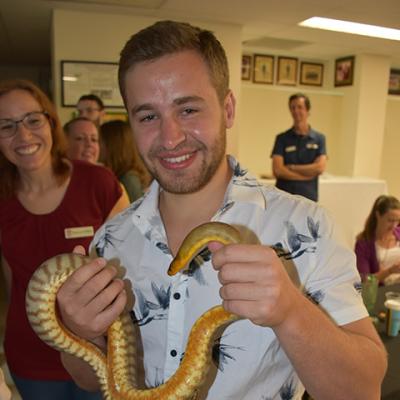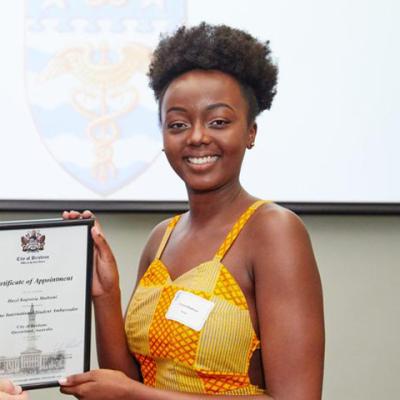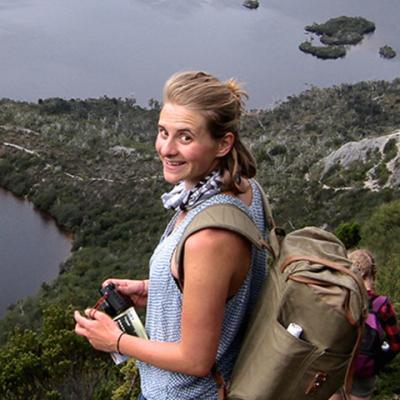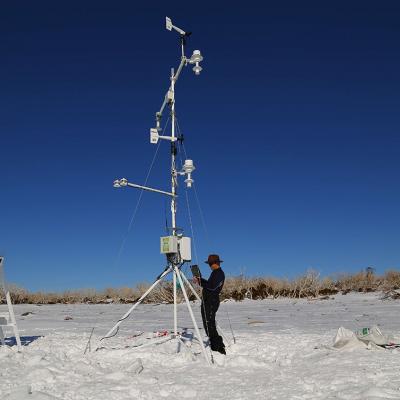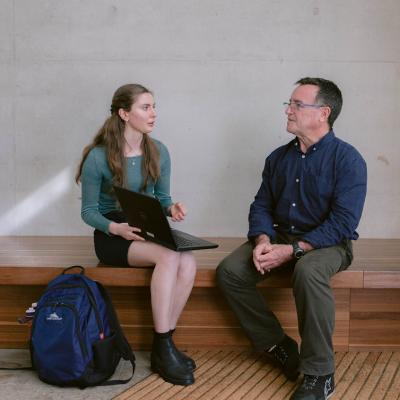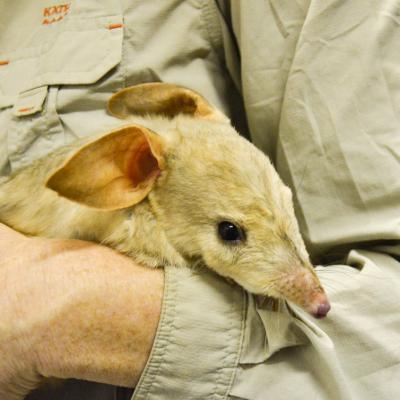Undertake environmental studies at UQ and learn how you can make a positive impact on our natural world.
Whether you’re interested in environmental science, environmental management or conservation, at UQ you will learn from passionate, award-winning teachers and researchers who are experts in their field.
We’re not only dedicated to teaching environmental responsibility but practising it too. UQ consistently ranks in the Association for the Advancement of Sustainability in Higher Education’s (AASHE) Sustainable Campus Index and last year we secured a prestigious Green Gown Award.
At UQ, we’re committed to doing our part for the environment and training the next generation of environmentalists.
Let’s take a closer look at what makes UQ the best place to study environmental science, management and conservation, and why you should choose us for your undergraduate degree.
Study at Australia’s #1 university for environmental science
UQ is one of the best universities to study environmental science at in the world, and we’re not just saying that to flatter ourselves – it’s a fact. According to the QS World University Rankings by Subject 2025, we’re #1 in Australia and #15 in the world for environmental sciences.
Choosing somewhere to study, however, is about more than rankings. For environmental management graduate Hayden Woodall, studying at UQ meant learning skills through engaging practical experiences and receiving the support he needed to succeed after his studies.
"UQ offers high quality learning that provides the necessary skills to work in the environmental field,” he says.
Read more about Hayden’s experience studying the Bachelor of Environmental Management (Honours).
Learn from the best
At UQ, you’ll learn from world-leading experts in environmental science, ecology, conservation, and sustainability. Our teachers are actively engaged in cutting-edge research and are often involved in decision-making for institutions, such as:
They bring their expertise to the classroom to provide you with unparalleled insights into the latest developments in their respective fields.
Meet Ron, an Associate Professor with UQ’s School of the Environment (and active environmental scientist) and discover his approach to teaching.
Travel while you study
As part of your studies, you can participate in a variety of field trips to a range of environments across Queensland and Australia.
Environmental management graduate Hazel Muthomi says this was one of the best parts of her study experience at UQ.
"What made my program unique, and part of the reason I chose this program, was that we had the opportunity to complete a 2-week field trip across Queensland,” she says.
"It was great to see the real-world application of what we were learning in class and helped me decide on possible future career paths."
You can also undertake placements and practical field-based experiences in diverse subtropical and tropical ecosystems, including world heritage rainforests, the Great Barrier Reef, Carnarvon Gorge, North Stradbroke Island (Minjerribah), and outback Australia. Past students have also done placements abroad in Indonesia, China, Vietnam and Hong Kong.
Hear from Harry, who did a 3-month industry placement with WWF in China:
Get hands-on research experience
Many universities in Australia only offer opportunities to get involved in research projects to postgraduate students and PhD candidates. But research is what’s helping us combat climate change and protect our natural environment, so we believe it’s essential for you to have opportunities to get hands-on experience with real research projects as an undergraduate.
From identifying new species of snakes and beetles, to using interactive maps to chart global coral health, our scientists work on some of the most fascinating and rewarding research projects around. And you could contribute to them too.
UQ offers Summer or Winter Research Programs, where undergraduate students can gain up to 3 months of grant-funded research experience in the university holidays. This not only looks great on your resumé, but also gives you an idea of whether you’d like to pursue postgraduate research and even a research career.
Bachelor of Science (Honours) graduate Hannah Wauchope says the research she was exposed to during her studies helped her carve out a successful career in conservation.
"My time at UQ gave me the best possible start in working in the field of conservation science,” she says.
“Since obtaining my undergraduate degree, I've worked as a research assistant both with the group I studied with at UQ and also with the Australian Antarctic Division, based in Hobart, Tasmania.”
Discover some of the environmental research projects we’ve been working on to get a glimpse of the kind of world-changing research you could contribute to at UQ.
Prepare for a varied career
With the planet facing unprecedented challenges from climate change, habitat destruction and resource depletion, there has never been a greater need for skilled professionals dedicated to protecting and preserving our natural world.
Upon graduation, you can expect to find employment within consultancies, mining companies, government departments, land care groups or NGOs. Environmental careers span a variety of sectors, including national parks and wildlife conservation, environmental assessment and compliance, natural resource management, policy development, mining and environmental tourism.
Giselle Pickering studied a Bachelor of Science (Honours) majoring in Geographical Science, and now works in water planning ecology for the Queensland government. She believes the holistic approach to problem-solving that she learnt at UQ helps her in her day-to-day job.
“Studying geographical science at UQ allowed me to explore many different perspectives and techniques for approaching challenges related to people, place and environment,” Giselle says.
“These varied and flexible approaches are a really useful addition to my team because in our work we need to consider many different impacts (natural or human-induced) on ecosystems at varying scales.”
According to Giselle, the best part of her job is that it never gets dull.
Discover the many different careers in environmentalism our graduates have pursued since completing their studies.
Choose from a range of study options
There are several ways you can undertake environmental studies at UQ:
- In the Bachelor of Environmental Management (Honours) you'll gain a foundation in environmental sciences while also focusing on social and economic disciplines, decision making, problem solving and policy analysis.
- In the Bachelor of Science and Bachelor of Advanced Science (Honours) you can major in Environmental Science, Ecology and Conservation Biology, Coastal and Ocean Science, Earth Science, Plant Science, Geographical Science, Marine Biology, and much more.
- The Bachelor of Science can also be studied as a dual degree with 14 other programs at UQ, including arts, computer science, engineering, law and journalism.
UQ offers one of the widest ranges of science disciplines in Australia, and you can tailor your studies to match your career goals.
Explore all the ways you can study environmental studies at UQ to discover more reasons you should put us as your first QTAC preference.


